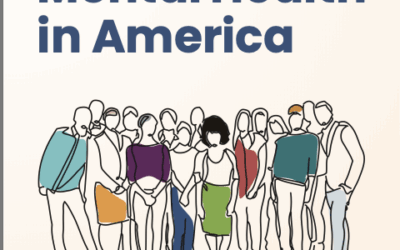Mental Health America (MHA) recently released its State of Mental Health Report 2020, which ranks all 50 states and the District of Columbia based on several behavioral health and access measures. Almost 20% of people in the U.S. are living with a mental health condition, a 1.5 million increase over last year’s report.
The report concludes that far too many states were ill-prepared from the start to tackle the mental health crisis we are in now. All states need to treat mental health with urgency, and increase support as the pandemic continues to increase depression, anxiety and substance use.
Virginia ranks:
- 26th overall among all the states. Virginia ranked in the middle of the overall rankings, based on all 15 measures.
- 20th in overall youth rankings. After improving over the last two years, Virginia’s youth mental health ranking slipped from 17th to 20th overall.
- 53% of Virginia youth who experienced a Major Depressive Episode did not receive treatment. Although this was better than most states, the lack of treatment is a major problem across the country.
- 29th in overall adult rankings. Virginia’s overall adult ranking fluctuates yearly, up this year to 29th. In last year’s report Virginia’s ranking was the worst in 5 years, down to 42rd after ranking 13th at one time. The improvement appears to be related to better access to care for adults, additional services at local Community Services Boards, as well as a comparable increased prevalence of mental illness in other states.
- 39th in overall access to care for youth and adults, dropping from 37th among all the states. This ranking includes access to insurance, access to treatment, quality and cost of insurance, access to special education, and workforce availability. A low Access Ranking indicates that a state provides relatively less access to insurance and mental health treatment.
- 47th among all states in adults with a mental illness who reported they were not able to receive the treatment they needed. The state of West Virginia ranked 17th.
- 41st in access to a trained mental health workforce. The lack of a sufficient workforce of mental health professionals is a problem in most of the country, and since MHA’s report began 5 years ago, Virginia is consistently near the bottom – 41st in this report.
In developing the report, MHA looked at 15 different measures available from every state to determine the rankings. They are not a complete picture of the mental health system, but do provide a strong foundation for understanding the prevalence of mental health concerns and access to treatment. The annual rankings are most valuable in tracking a state’s change relative to other states over time.
The data was collected between 2017 and 2018, pre-Medicaid expansion in Virginia, a change that should show improved access to care in next year’s report. However, the data is also pre-pandemic, before thousands developed mental health symptoms while also losing jobs and employer sponsored health coverage.
At its last regular session, Virginia’s legislature approved significant budget increases and policy initiatives to improve the state’s continuum of care, and prioritize access to mental health services. These improvements were frozen due to the pandemic’s impact on the state budget. Fortunately, some of the budget increases were “unfrozen” during the state’s recent special session, but now the pandemic continues and the accompanying mental health crisis is worsening.
To slow the deepening crisis and ultimately improve Virginia’s access to care will take a heightened effort by all parties. Stakeholders, local and state government, legislators and private providers should treat the state of our mental health with urgency, humility, and creative partnerships.
Bruce N. Cruser, Executive Director
Mental Health America of Virginia



